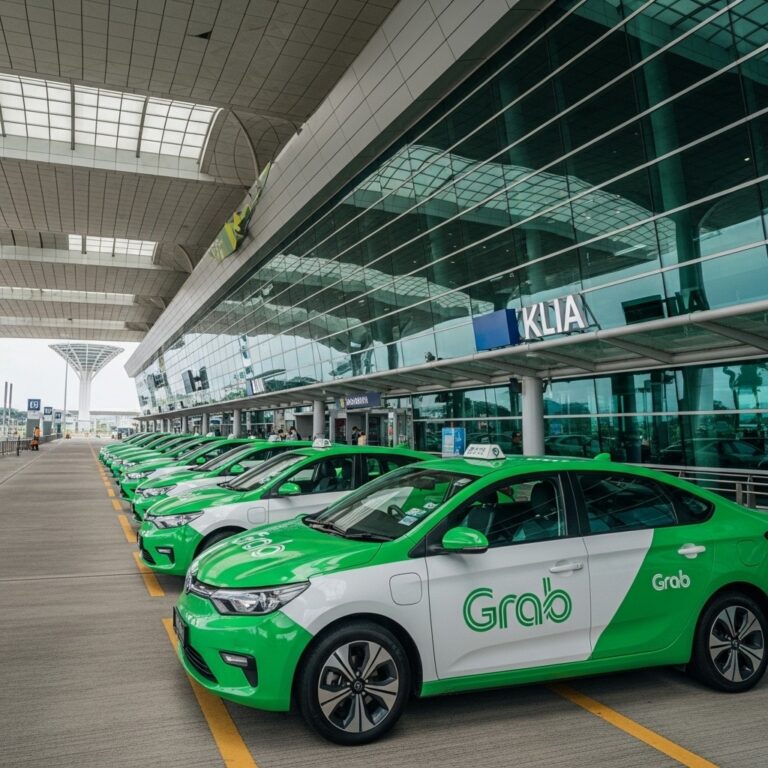Grab Launches 1st EV Fleet at KLIA: Malaysia’s Green Push
Malaysia’s sustainable mobility efforts are gaining attention as Grab Malaysia recently launched its first electric vehicle (EV)-only airport fleet at Kuala Lumpur International Airport (KLIA). This milestone aligns with the country’s carbon neutrality target by 2040, reflecting both corporate responsibility and rising consumer demand for eco-friendly solutions. Meanwhile, greentech companies like ITRAMAS continue to lead renewable energy engineering and smart city initiatives, showing that Malaysia is serious about building a sustainable future.
Why Is Grab’s EV Fleet Launch Important?
Grab’s launch of an EV-only fleet at KLIA is a significant step forward for Malaysia’s transportation sector. Key highlights include:
- First dedicated EV airport fleet in Malaysia, setting an industry benchmark
- Supports government goals to reduce transport sector emissions
- Encourages wider EV adoption among rideshare and taxi operators
According to Grab Malaysia, the fleet currently includes EV models such as the Hyundai Kona Electric, with expansion plans to increase availability and reduce passenger wait times. By reducing carbon emissions per ride, Grab contributes towards a greener transport ecosystem in line with Malaysia’s Low Carbon Mobility Blueprint 2021-2030.
How Does This Benefit Malaysian Consumers?
For airport passengers and daily commuters, Grab’s EV fleet launch brings:
- Quieter, smoother rides with zero tailpipe emissions
- Lower long-term operational costs potentially leading to more stable fares
- A sense of pride supporting national sustainability efforts
This shift also increases public awareness of EV technology, encouraging more Malaysians to consider electric cars for personal or commercial use as charging infrastructure improves nationwide.
ITRAMAS: Leading Malaysia’s Renewable Energy Engineering
While Grab spearheads EV adoption in transport, ITRAMAS is driving renewable energy growth. As Malaysia’s leading greentech engineering firm, ITRAMAS focuses on:
- Large-scale solar projects powering homes, businesses, and industries
- Smart city technologies integrating solar, IoT, and efficient infrastructure
- Public lighting solutions using energy-saving LEDs to reduce municipal electricity bills
ITRAMAS’ flagship projects include Malaysia’s largest solar farm under the LSS programme and the nationwide LED street lighting retrofit, which has cut public lighting energy usage by up to 60% in participating municipalities.
Malaysia’s Path Towards Carbon Neutrality by 2040
The government’s pledge to achieve carbon neutrality by 2040 requires:
- Expanding renewable energy contributions in national power generation
- Reducing reliance on fossil fuels for transportation through EV adoption
- Encouraging green building practices in commercial and residential projects
Malaysia’s Energy Transition Roadmap (NETR) outlines plans to reach 70% renewable energy capacity by 2050. The progress of companies like Grab and ITRAMAS indicates that private sector partnerships are vital for hitting these targets.
Challenges Ahead for Sustainable Mobility and Greentech
Despite these promising initiatives, several challenges remain:
- Limited EV charging stations nationwide compared to petrol stations
- High upfront costs of EVs despite long-term operational savings
- Need for clear policies incentivising commercial fleet electrification
- Public awareness gaps about EV safety, maintenance, and performance
What Can Malaysians Expect Next?
Based on current developments, Malaysians can look forward to:
- More EV ride options beyond KLIA as Grab expands its EV fleet nationwide
- ITRAMAS advancing solar and smart city solutions into suburban and rural regions
- Government incentives making EVs and home solar systems more accessible
Regional Context: How Does Malaysia Compare?
Malaysia’s green mobility and renewable energy efforts are comparable to ASEAN neighbours:
- Singapore: Aggressive EV incentive policies and planned phase-out of ICE vehicles by 2040
- Thailand: Ambition to become the ‘EV hub of ASEAN’ with major battery and EV assembly investments
- Indonesia: Rapid nickel-based battery manufacturing growth to support local EV production
Malaysia’s approach balances EV infrastructure development with renewable energy growth, aiming for a comprehensive low-carbon transition rather than isolated policies.
Public Sentiment and Social Impact
On social media, Malaysians have expressed excitement over Grab’s KLIA EV fleet, with comments highlighting:
- Hope for wider EV adoption in daily rideshare services
- Pride in Malaysian companies taking environmental initiatives seriously
- Calls for charging station expansion at apartments and public car parks
Environmental NGOs and urban policy analysts commend these moves but emphasise the importance of making EVs accessible to lower-income drivers through rebates or financing schemes.
Conclusion: Towards a Greener Malaysia
Grab’s launch of the first EV-only airport fleet at KLIA and ITRAMAS’ leadership in renewable energy signal Malaysia’s growing commitment to sustainability. These milestones show that public-private partnerships are key to achieving carbon neutrality by 2040. As EV infrastructure grows, renewable energy investments expand, and consumers embrace eco-friendly choices, Malaysia is well-positioned to become a regional leader in green mobility and clean technology innovation.
For Malaysians, these changes not only improve daily lives with cleaner air and quieter rides but also strengthen the nation’s global reputation as an emerging sustainable economy ready for the future.



